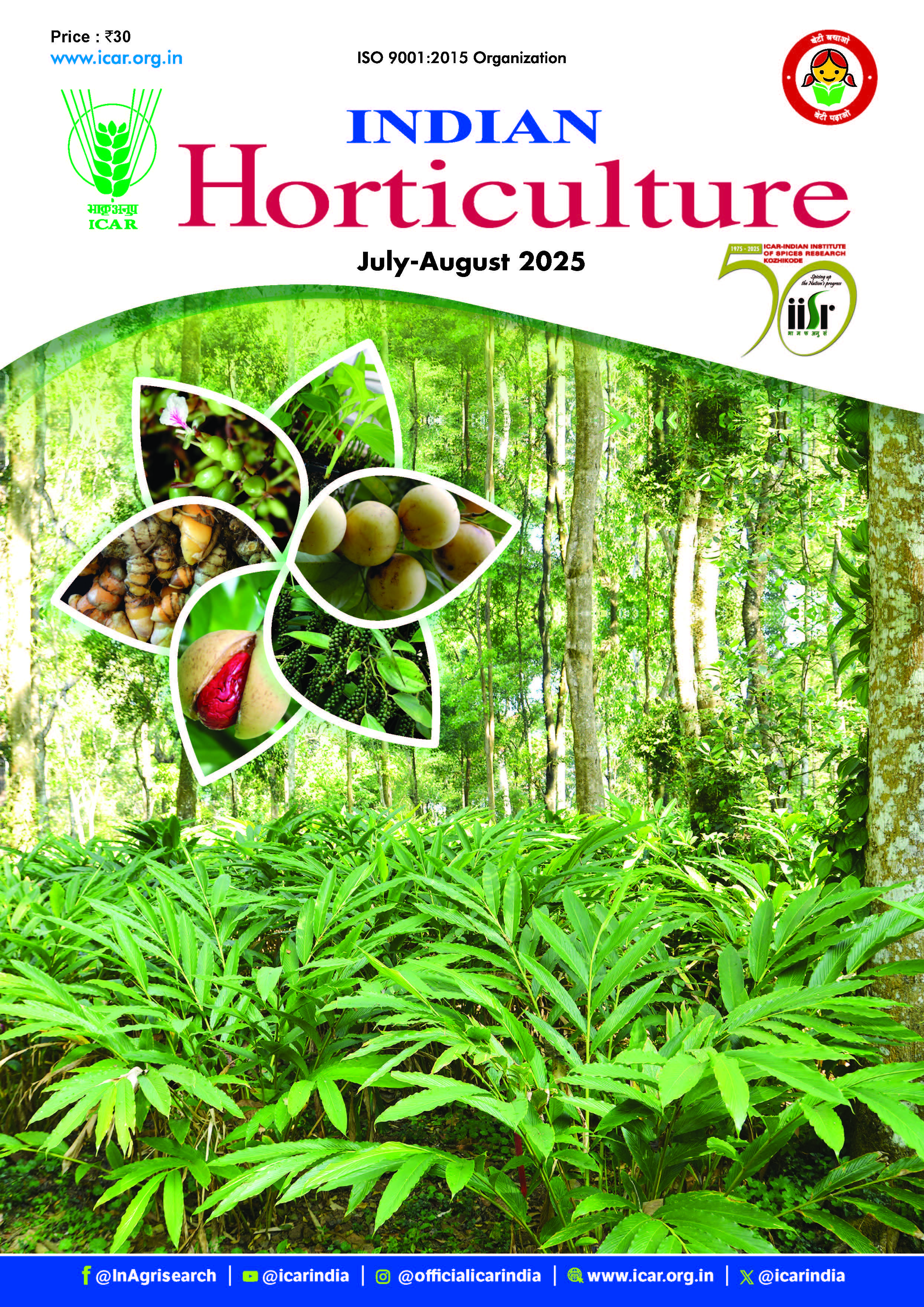Whole genome sequencing of black pepper: A 'gene-ius' move for pepper farmers
70 / 70
Abstract
Black pepper (Piper nigrum L.), a globally significant spice crop, suffers substantial yield losses due to biotic stresses such as phytophthora foot rot and pollu beetle infestation. Traditional breeding approaches have been constrained by the crop’s perennial nature, long juvenile phase, and limited genetic variability among cultivated varieties. In this study, we discuss the implications of whole genome sequencing (WGS) of black pepper as a foundational advancement in spice crop genomics. The availability of a chromosome-scale reference genome enables precise identification of genes responsible for disease and pest resistance through
comparative genomics with wild Piper species such as P. colubrinum and P. barberi. Furthermore, WGS facilitates marker-assisted selection, accelerates trait introgression, and provides insights into piperine biosynthesis and abiotic stress tolerance. This genomic resource lays the groundwork for molecular breeding, gene discovery, and future gene editing interventions aimed at developing
resilient, high-yielding cultivars. The study highlights WGS as a transformative tool for enhancing black pepper productivity and sustainability.
Downloads
Downloads
Submitted
Published
Issue
Section
License
Copyright (c) 2025 Indian Horticulture

This work is licensed under a Creative Commons Attribution-NonCommercial-ShareAlike 4.0 International License.
Complete copyright vests with the Indian Council of Agricultural Research, who will have the right to enter into an agreement with any organization in India or abroad engaged in reprography, photocopying, storage and dissemination of information contained in it, and neither author nor his/her legal heirs will have any claims on royalty.
